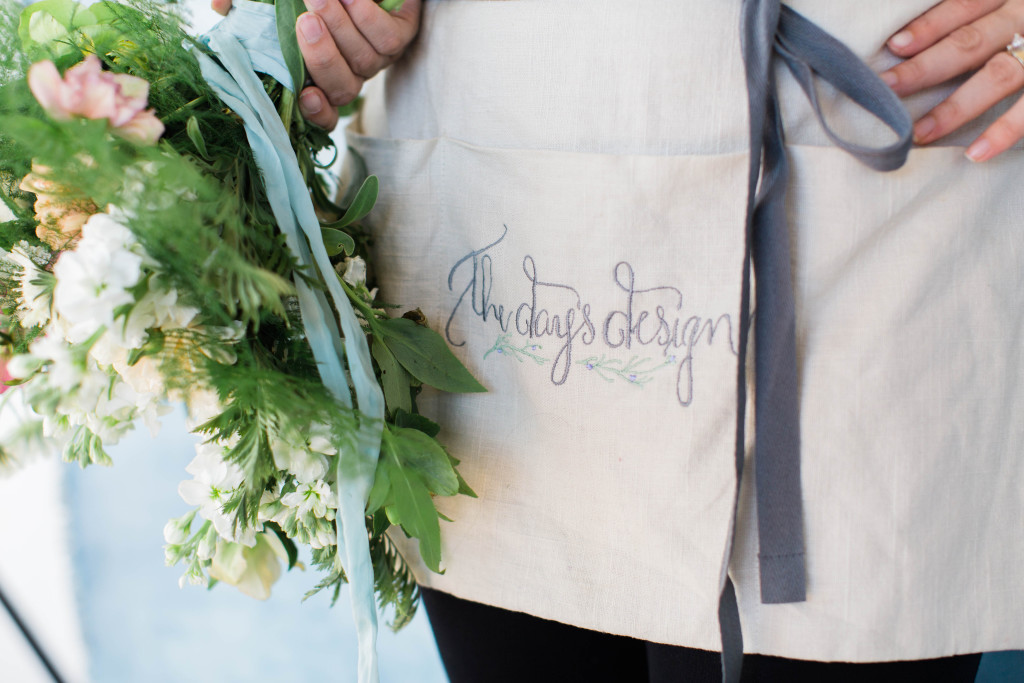There was a wedding I worked last summer at a beautiful new venue. It was owner operated and so I would also call her the venue coordinator. We talked about a ton of plans before hand and she had quite a few “particulars” that were musts on her lists to keep her venue in pristine condition. She had extra staff around and she would often reference that “they” will take care of various things. She was also very involved with the overall flow. Nothing crazy out of the ordinary for a venue coordinator. However, it got to a point in the evening where things just weren’t proceeding as they should and I needed to take matters into my own hands. Something that “they” were supposed to do hadn’t happened yet. So I inquired about when it might be taking place. I don’t think I’ll ever forget this moment as I’m still filled with fury just thinking back, she stopped and turned, then barked at me “I don’t know! I’m not the wedding planner!!” She walked away, my blood was boiling and I didn’t speak to her the rest of the night (because obviously the silent treatment is the mature approach from me). And I did “their” job myself.
Other than the fact that her reaction was so out of line, the reason I was so upset about this is because I wasn’t the wedding planner either. I was just hired for day-of coordination. I didn’t know EVERYTHING. And this is why I beg couples to share as much information as they possibly can with me.

Photography: Ashley Slater Photography
The title of this article is “How to Work with a Wedding Planning”. I’d like to take time to explore this from both a vendor and client perspective. These questions come up all the time – what’s the relationship between bride and planner? Who do we communicate with? Who are services contracted through? Does the planner completely take over the wedding?
Before I can answer these questions, I need to start by laying some groundwork. We need to understand the various levels of service that you can hire someone like myself for. I think why the venue owner reacted the way she did was due to a lack of understanding. She didn’t understand what the bride truly hired me to do, or what the difference is between a coordinator and planner.
I’m hoping that with this little series we can clear up some of the misconceptions and learn how we call can work together.
Now, it might vary some depending upon who you hire, but for me, I offer several different options and this is what each of these services include.
-
Floral Design
If I’ve been hired for floral design only, I’m going to make some gorgeous arrangements. However, I’m not going to design or setup any other pieces of the wedding and I’m not in charge of any planning services. I’m simply going to decorate with the supplies that I brought along and then I’m going home for the day. Aside from possibly a quick chat with the photographer or adding a few blooms to the cake, I won’t have communications with the other vendors. This service is pretty unique to me, most planners don’t offer full floral design and if they do, it’s only with clients who have hired them for planning as well, which makes it more of an add on service. But I love flowers and will arrange them for weddings no matter what.
-
Event Design
Event design flows really well with floral design. Think of this as hiring me to take charge of anything that’s aesthetically pleasing. Some items that fall into this category would be linen selection, room layouts, invitations and other paper products, working with the cake designer, helping select bridesmaids colors, backdrops, place settings and sourcing some of those specialty rental items. However, this doesn’t include assistance with logistics, timing, etiquette or really any non-visual pieces of the wedding day. I scheme, I design, and I set everything up pretty and make sure that the special vendor’s I subcontracted are doing their part but then I’m on my way before the show really begins.
-
Day-of Coordination/Event Management
Sometimes one is hired just to manage those logistics. Some planners have strength in the visual elements and some are more suited to managing the flow of the day. While most planners will do either, I think it’s important to understand the strengths of whose been hired. Why did you go to that planner? Is it because they have awesome communications and flow with other vendors? Or is it because you love the look of their portfolio? And why does their portfolio look like that? If they’ only coordinated and had nothing to do with the design, then it can’t possibly be expected that every wedding they coordinate will have “that look”, because the planning of most of those visual elements most likely took place before they were involved.
So if someone is contracted to manage the day, expect them to do just that. They typically jump in about the last month or so of planning and tie up the loose ends. They make sure that everything the bride has put in place actually happens and are the go-to person on the wedding day and the final days leading up to the wedding. Questions from other vendors can be filtered through them, therefore eliminated 50 different texts/emails/calls to the bride on the day before the wedding and we can narrow that down to 1 from her coordinator, who will be in fact her right hand man on the day of. Typically this person is the first person onsite and the last one to leave at the end of the evening. They don’t generally do much setup or decorating, a few tasks here or there such as placing table numbers or escort card displays but for the most part, their job is to oversee and make sure that everyone else is doing their job.
Now as a vendor working a coordinator, understand that they may not have all the answers right away – they only have information the bride has given them. And sometimes sucking information out of the bride is a challenging task, from finalizing guest counts to knowing who receives all of the corsages and boutonnières, there are a lot of the pieces of the puzzle to be managed. We coordinators at times have had to deal with brides who haven’t found it necessary for us to have “all” the information, which is a really tough place to be in and sometimes make us appear less than adequate at our jobs.
-
Full Service Wedding Planning
This person is hired to assist with the entire process. There’s not much that’s off limits – from design, to vendor selections, clothing, rsvp tracking and turning out the lights at the end of the night, this is your all-encompassing package.
The full service wedding planner will spend over 200 hours planning a wedding. The wedding weekend itself may contain a couple 12+ hour days for her and her assistants. There will be so much behind the scenes work that goes unseen, it’ll just magically happen and the day will (hopefully) be perfect.
If the wedding planner is also the floral designer, add another 100 hours of labor onto a big wedding. I know it sound excessive but this is not a job for the weak and weary.
I’ve said it before and I’ll say it again, the planner isn’t there to take away from their fun in wedding planning. The bride and groom are usually still involved and there are details that the planner cannot handle – inviting guests, dress fittings, music selection, seating charts, cake and food tasting – just to name a few. Most planners stay in the know on all these subjects, but there’s a chance that a bride or groom may change their mind and forget to notify the planner. It’s not a fool proof system that everything will remain worry free just because there’s a wedding planner. Communication is key to this relationship.
This post got a little wordy, but if you’re still with me – that’s step 1 to working with a planner for both clients and vendors. Bottom line, you need to know who was hired and what services they have been hired for. This will determine the rest of the working relationship. Stay tuned for part 2 of this 4 part series.

[…] In case you missed it, you can read Part 1 of this series here. […]
Sometimes you’ll get lucky and have a planner who has already discussed with your couple the benefits of a first look. Most planners favor the couple seeing each other before the ceremony because of benefits to the timeline.